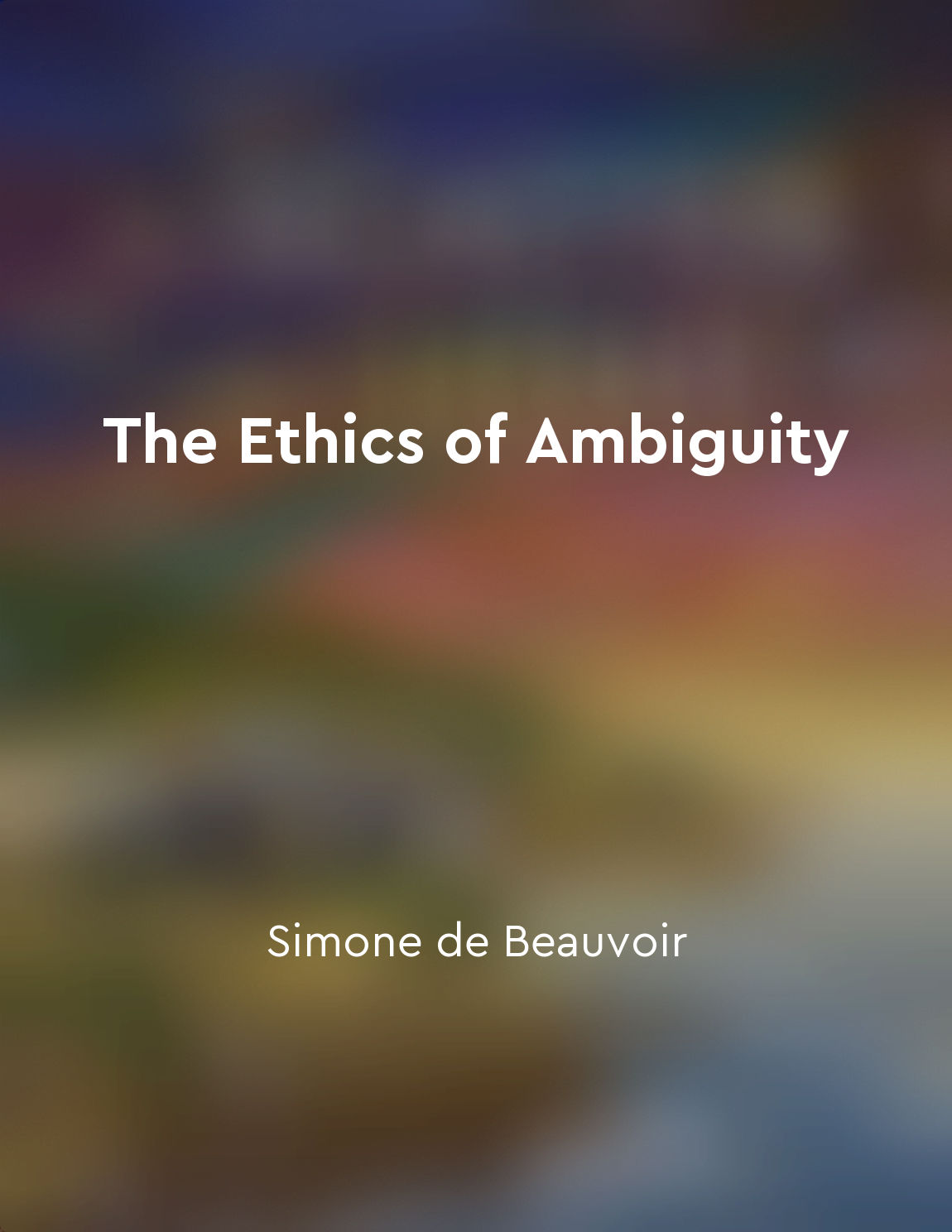The individual must create their own ethical framework from "summary" of The Ethics of Ambiguity by Simone de Beauvoir,Bernard Frechtman
In the face of ambiguity and uncertainty, individuals are confronted with the task of forging their own moral compass. This task is not to be taken lightly, as the formation of an ethical framework is a deeply personal and complex process that requires introspection and critical reflection. One cannot simply rely on external sources or authority figures to dictate what is right or wrong. Instead, each individual must engage in a process of self-discovery and self-definition in order to determine their own values and principles. This process is essential for cultivating a sense of autonomy and responsibility in one's ethical decision-making. By taking ownership of their ethical framework, individuals are able to navigate the complexities of the world with a sense of purpose and integrity. They are able to confront moral dilemmas and ethical challenges with clarity and conviction, guided by their own deeply-held beliefs and values. This process of ethical self-creation is not easy, nor is it without its challenges. It requires courage and a willingness to confront the inherent ambiguity and uncertainty of the human condition. It requires a willingness to grapple with difficult questions and to embrace the complexity of moral decision-making.- The individual who takes on the task of creating their own ethical framework is able to live authentically and ethically in a world that is often fraught with moral ambiguity and contradiction. They are able to find meaning and purpose in their actions, guided by their own deeply-held convictions and values.


